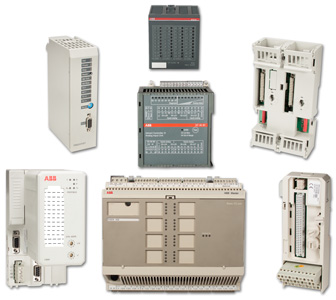Unlocking the Secrets to Scoring the Best PLC CPU Modules for Your Industry!
In the world of industrial automation, PLC CPU modules serve as the brain behind various processes, making them indispensable for efficient operations across numerous sectors. These modules control machinery, manage data, and ensure seamless communication between devices, ultimately contributing to enhanced productivity and safety. For anyone looking to invest in PLC CPU modules, understanding how to effectively purchase them is crucial. This article will guide you through the essentials of acquiring these vital components, whether you're opting to buy directly from a supplier or exploring the vast options available through online marketplaces.

Understanding PLC CPU Modules
PLC CPU modules, or Programmable Logic Controller Central Processing Units, are critical components in automated systems. They function as the core of a PLC, executing control instructions and processing data from various input and output devices. These modules allow for real-time processing and control, making them essential for applications ranging from manufacturing lines to complex industrial processes. Their ability to interface with sensors, actuators, and other control devices means they play a pivotal role in ensuring operational efficiency. A friend of mine, who works in a manufacturing facility, often shares stories about how the right PLC CPU module has transformed their production line, increasing both speed and accuracy. Understanding the role of these modules can help you appreciate their value in automating industrial tasks.
Factors to Consider When Purchasing PLC CPU Modules
When it comes to purchasing PLC CPU modules, several factors should be carefully evaluated to ensure you choose the right module for your specific needs. Compatibility is paramount; you must ensure that the module you select is compatible with your existing PLC system. Additionally, performance specifications such as processing speed, memory capacity, and communication protocols should be aligned with the demands of your application. The intended application also plays a significant role—consider whether you need a module for simple control tasks or one capable of handling complex automation processes. My colleague once learned this lesson the hard way when they purchased a module that lacked the necessary processing power for their application, leading to inefficiencies and delays. Thoroughly assessing these factors will help you make an informed choice and avoid common pitfalls.
Where to Buy PLC CPU Modules
When it comes to sourcing PLC CPU modules, you have a couple of primary options: purchasing directly from suppliers or exploring online marketplaces. Buying directly from a supplier often offers the advantage of personalized service, technical support, and the opportunity to establish a long-term relationship. However, this can sometimes come with a higher price tag. On the other hand, online marketplaces provide a broader range of options, potentially at more competitive prices. However, the trade-off may include less direct support and the need for extensive research to ensure credibility. A friend of mine once found an incredible deal on an online marketplace, but it turned out to be a lengthy process to resolve compatibility issues. Weighing the pros and cons of each option will help you decide the best route for your purchase.
Tips for Ensuring a Successful Purchase
To ensure a successful purchase of PLC CPU modules, it’s essential to take a systematic approach. Start by thoroughly researching potential suppliers, looking for reviews and testimonials from other customers. This will give you an idea of their reputation and reliability. It's also wise to check for warranty and support options, as having access to technical assistance can be critical if you encounter issues post-purchase. Additionally, don't hesitate to ask questions or seek clarification about the product specifications and compatibility. I recall a time when one of my friends almost skipped this step, only to realize later that the module they purchased was incompatible with their system. Taking the time to do your homework can save you from facing unnecessary challenges down the line.
Key Takeaways on PLC CPU Modules
In summary, PLC CPU modules are vital components for any industrial automation system, and understanding how to acquire them effectively is key to ensuring operational success. By grasping the fundamentals of these modules, considering important purchasing factors, exploring various buying options, and following practical tips, you can make informed decisions that will benefit your operations in the long run. Whether choosing a direct supplier or navigating online marketplaces, being diligent in your approach will lead you to the best PLC CPU modules for your specific industrial needs.











Comments